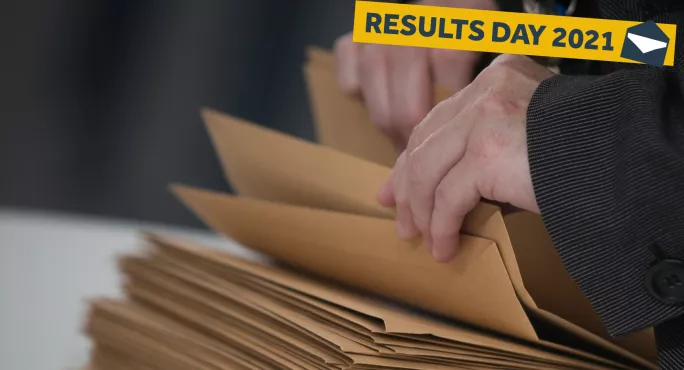- Home
- Leadership
- Tips & Techniques
- GCSE results day 2021: A school leader’s survival guide
GCSE results day 2021: A school leader’s survival guide

It’s pointing out the obvious to state that GCSE and A-level results days this summer will be unlike any others.
Aside from the ongoing concerns about coronavirus, we are also having to manage the emotions of young people who will be getting grades for exams they didn’t take. These won’t be days where we can rest on our laurels and just do what we normally do.
GCSE and A-level results days 2021
Fortunately, we still have some time to prepare. We need to be ready to make sure results days run smoothly for students who’ve had the most challenging end to their time at school. Here are the top five things on my mind as I plan for the two big days of the summer.
1. Know who to look out for
Although we have had a much better idea of what our results will be like because of the teacher-assessed grade (TAG) system, the sampling and virtual visits mean that the final results will still only be known for certain once the exam boards release them to schools. Therefore those extra 24 hours we have before results are then released to students is a gift. Use them to work out which students will get results below what they were expecting.
If you’re running results days in person, then you can allocate staff to look out for specific students. We’ll also be preparing a crib sheet on what their options are if they’re disappointed, so that they can take away a reminder of what to do next. Important dates like entry deadlines for GCSE and A-level autumn exams may easily be forgotten in the haze of the day itself.
2. Have a system for releasing the portfolio of evidence
Many of those disappointed students will want to know what evidence has been included in their portfolio, and what your centre policy for TAGs was. The day will be easier for you and for students if you have a system ready for releasing these. JCQ guidance advises all schools and colleges to share the portfolio and policy with students. Nobody wants to spend results day sending or receiving subject access requests.
In cases where exam boards have moderated down your predictions following a virtual visit, having teacher-assessed grades might also help your students to get into their preferred course.
3. Be prepared for complaints
Allocate responsibility for dealing with any complaints in advance. Emotions will be running high, and you don’t want staff having to deal with these on an ad hoc basis. Have one or two senior staff responsible for complaints, and direct any unhappiness their way.
The appeals process is going to be different this year, and it is important that all staff are aware of the steps needed for students to appeal their grades: starting with the centre review, and then a full appeal if they are still unhappy with the outcome.
Read more: How to handle the blame game on GCSE results day
Plan: How to run a socially distant results day
Support: How to appeal results 2020
4. Put yourself in the students’ shoes
We all went through our own results days and will remember our own emotional reactions to them. However, none of us went through a results day like this. The grades we got came from the exams we sat. This summer, things aren’t quite that simple.
There’s likely to be a feeling of frustration and helplessness from students who didn’t have a chance to take the exam and beat our predictions - and we know some of them would have done. Although they have the option to take exams in the autumn, this is a poor substitute for taking the real things at the right time. I’ll be taking a few minutes before results day to try putting myself in their shoes.
5. Make it special
The circumstances around these results are different from any other year, but it’s still a special day. For many students, it will be the last encounter they have with your school. We may not be able to hold many of the same celebrations we’re used to, but we can still find a way to make it a happy memory of our schools. Whether it’s balloons and banners, or just a wall of smiling staff faces, let’s make it feel special.
We can’t plan for every eventuality, and we’re likely to be surprised by some things we weren’t expecting. But with good planning, we can be ready for most things. That will give us the space to spend the day celebrating and supporting students who’ve been through one of the hardest school years ever.
David Thomas is the regional director for Cambridgeshire at Astrea Academy Trust and a former secondary school principal
You need a Tes subscription to read this article
Subscribe now to read this article and get other subscriber-only content:
- Unlimited access to all Tes magazine content
- Exclusive subscriber-only stories
- Award-winning email newsletters
Already a subscriber? Log in
You need a subscription to read this article
Subscribe now to read this article and get other subscriber-only content, including:
- Unlimited access to all Tes magazine content
- Exclusive subscriber-only stories
- Award-winning email newsletters



